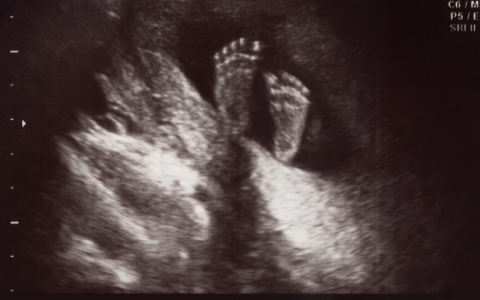Fresh Embryo Transfer vs. Frozen Embryo Transfer: Which is Better?

When it comes to the implantation phase in the IVF process, the choice between fresh embryo transfer and frozen embryo transfer becomes a crucial consideration for many prospective parents. Each method has its own characteristics. Why does RSMC insist on using frozen embryo transfer? The following will provide a detailed explanation of the differences between the two and the reasons for the choice.
What is Fresh Embryo Transfer?
Fresh embryo transfer refers to the implantation of embryos in the same cycle after ovulation induction and egg retrieval. This method can be divided into two types:
1. Cleavage-stage embryo transfer: performed on the 3rd day after egg retrieval.
2. Blastocyst-stage embryo transfer: performed on the 5th day after egg retrieval.
Fresh embryo transfer is an option if the patient's uterus and maternal health are normal. However, if there are uterine or maternal abnormalities, or if preimplantation genetic testing for aneuploidy (PGT-A, formerly known as PGS) is needed, frozen embryo transfer must be chosen. RSMC only implants embryos that are 100% normal after PGT-A into the surrogate mother. Abnormal mosaic embryos or embryos that have not undergone PGT-A are not implanted. Embryos that have not undergone PGT-A can be sent to RSMC's laboratory for testing or, if PGT-A has been performed at the original clinic, can be transported legally and professionally to the RSMC Reproductive Medicine Center in the United States.
What is Frozen Embryo Transfer?
Frozen embryo transfer involves thawing embryos that have been cryopreserved and then transferring them. The advantages of frozen embryo transfer include:
1. No need for ovulation induction and egg retrieval: only requires preparation of suitable uterine conditions.
2. Flexibility in timing: allows for choosing the optimal transfer time based on maternal conditions.
3. Customized treatment options: provides better personalized treatment options for patients with metabolic or immune abnormalities.
Why Choose Frozen Embryo Transfer?
In the United States, frozen embryo transfer is preferred due to its world-leading embryo freezing and recovery techniques, making fresh and frozen embryos essentially equivalent. Many hospitals in Asia still rely on fresh embryo transfer, partly because local freezing techniques may not meet high standards, leading to loss of precious embryos and reduced pregnancy success rates. However, fresh embryo transfer poses difficulties in timing control, often resulting in the uterus not being in the optimal state when the embryos are ready. In contrast, frozen embryo transfer allows for complete synchronization of ovarian and uterine preparation, avoiding pregnancy outcome interference due to mismatched timing.
Finally, another important reason for insisting on frozen embryo transfer is responsibility. Many hospitals in Asia not only rely on fresh embryo transfer but also implant multiple embryos to increase pregnancy success rates, which may lead to high-risk pregnancies or situations where reduction is required after conceiving multiples. The advancement of frozen embryo technology makes high pregnancy success rates with single embryo transfer possible, which is both safe and effective.
Challenges of Fresh Embryo Transfer with Surrogacy
One major challenge of fresh embryo transfer lies in timing control, which becomes even more difficult when using a surrogate mother. Fresh embryo transfer requires implantation of embryos shortly after egg retrieval, demanding perfect synchronization between the surrogate mother's uterine environment and the embryo's developmental stage. However, ensuring this artificial synchronization is challenging, as it's difficult to guarantee complete alignment between ovarian ovulation timing and uterine readiness.
Even with good embryo quality, if the uterine lining is not ideal for implantation during fresh embryo transfer, the procedure may fail due to unsuitable uterine conditions. This directly affects the success rate of the IVF treatment. This aspect is particularly crucial in surrogacy situations because the physiological condition of surrogate mothers may differ from that of natural pregnancy mothers, necessitating more precise medical control and monitoring.
In contrast, frozen embryo transfer offers greater flexibility in timing. Embryos can be cryopreserved first, and then thawed and implanted at the optimal time when the surrogate mother's uterine environment is fully prepared. This method not only increases the success rate of implantation but also significantly enhances the overall success rate of the IVF treatment by reducing the risk of pregnancy failure due to timing mismatches.
Therefore, choosing frozen embryo transfer is not only based on technical considerations but also aims to provide a safer and more controllable implantation process, especially in surrogacy cases, ensuring that every step is carefully planned to maximize the success rate of the IVF treatment. These are the key reasons why RSMC strongly recommends frozen embryo transfer.
Choose RSMC for Successful Parenthood
RSMC's decision to opt for frozen embryo transfer is based on careful consideration of patient health and pregnancy success rates. It's not just a technical choice but also an ethical commitment aimed at protecting maternal health and maximizing the success rate of each transfer. Frozen embryo transfer provides doctors and patients with greater control, making the transplantation process more precise and secure. This method can reduce the failure rate caused by poor timing and allows for embryo implantation in an ideal uterine environment, thereby increasing the overall success rate.
With over 30 years of experience, top fertility expert physicians, access to the top three egg banks and surrogacy mother centers in North America, comprehensive management of six major medical insurances, and professional lawyers handling all legal documents until the baby's birth certificate is obtained, we have a professional team dedicated to handling every detail from your initial consultation to the birth of your baby. If you are interested in our treatment, feel free to consult with our 24-hour multilingual team online: Line / WeChat: rsmctw or join our WhatsApp conversation at +1 858-342-6046.
Further Reading:
Is Using Egg Banks Really Better Than Fresh Eggs for IVF?
Surrogacy & Surrogate Mother in Singapore (2024): Law and Medicine

DR. DAVID HARARI
RSMC DIRECTOR AND MEDICAL GROUP PRESIDENT
Dr. Harari earned his medical doctorate from the University of Georgia Medical Center, completed his internship at Georgia State Medical College, and subsequently finished his residency at Mercy Hospital Medical Center. With over 30 years of clinical experience, he currently serves as the President of the San Diego Obstetrics and Gynecology Association, boasting over 400 professional OB-GYN members. Dr. Harari respects each patient's individual preferences during the treatment process, providing them with the most professional treatment guidelines and working collaboratively to help them achieve their goals. He believes in the importance of open communication between the doctor and patient, willingly sharing his past medical experiences and offering the most professional medical advice.
About Dr. David Harari
Other
-
2025/03/13others
Can Vitiligo Be Cured With Reproductive Technology?
-
2025/02/24others
What are the reasons behind failed blastocyst culture?
-
2024/11/20others
A Must-Read for Expectant Mothers: All About Down Syndrome Screening!



